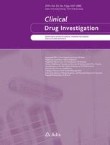|
Αρχειοθήκη ιστολογίου
-
►
2023
(256)
- ► Φεβρουαρίου (140)
- ► Ιανουαρίου (116)
-
►
2022
(1695)
- ► Δεκεμβρίου (78)
- ► Σεπτεμβρίου (142)
- ► Φεβρουαρίου (155)
-
►
2021
(5507)
- ► Δεκεμβρίου (139)
- ► Σεπτεμβρίου (333)
- ► Φεβρουαρίου (628)
-
▼
2020
(1810)
-
▼
Δεκεμβρίου
(544)
-
▼
Δεκ 20
(34)
- Comparison of peroral endoscopic myotomy between d...
- Totally laparoscopic anatomic S7 segmentectomy usi...
- Development and validation of machine learning mod...
- Transpancreatic biliary sphincterotomy for biliary...
- An advanced RFID-based system to localize gastric ...
- Salivary Glands and Periodontal Changes in a Popul...
- Minimally invasive procedure for removal of infect...
- Risk for developing perianal abscess in type 1 and...
- Επείγουσα ειδοποίηση πληροφοριών του ΠΟΥ για χρήστ...
- Calcium signaling: breast cancer’s approach to man...
- What Are the Preferences of Patients With Rheumato...
- Development of a Patient-Reported Outcome Measure ...
- Clinical and Economic Burden of Pediatric Mild-to-...
- Two-Year US Pharmacovigilance Report on Brodalumab
- Identification of characteristics, risk factors, a...
- Effects of Heat and Chemical Pretreatments of Bana...
- Clinical and radiological outcome after anterior c...
- Surgical site infections after distal radius fract...
- The faster the better? Time to first CT scan after...
- Influence of Biochar Particle Size and Concentrati...
- Critical Ischemia
- How to Assess a Patient for HSCT
- The Ncoa7 locus regulates V-ATPase formation and f...
- Autophagy and the endolysosomal system in presynap...
- Anatomical basis of erector spinae plane block: a ...
- Topical Probiotics in Dermatological Therapy and S...
- Surgical management of symptomatic cavum septum pe...
- Possible tics diagnosed as stereotypies in patient...
- Role and function of Chondrostereum purpureum in b...
- Temporal effects of barbiturate coma on intracrani...
- Naltrexone’s Impact on Cancer Progression and Mort...
- Pharmacokinetics and Bioequivalence of Cefprozil f...
- Targeted Use of Prednisolone with Intravenous Immu...
- Walking the line: mechanisms underlying directiona...
-
▼
Δεκ 20
(34)
- ► Σεπτεμβρίου (32)
- ► Φεβρουαρίου (28)
-
▼
Δεκεμβρίου
(544)
-
►
2019
(7684)
- ► Δεκεμβρίου (18)
- ► Σεπτεμβρίου (53)
- ► Φεβρουαρίου (2841)
- ► Ιανουαρίου (2803)
-
►
2018
(31838)
- ► Δεκεμβρίου (2810)
- ► Σεπτεμβρίου (2870)
- ► Φεβρουαρίου (2420)
- ► Ιανουαρίου (2395)
-
►
2017
(31987)
- ► Δεκεμβρίου (2460)
- ► Σεπτεμβρίου (2605)
- ► Φεβρουαρίου (2785)
- ► Ιανουαρίου (2830)
-
►
2016
(5308)
- ► Δεκεμβρίου (2118)
- ► Σεπτεμβρίου (877)
- ► Φεβρουαρίου (41)
- ► Ιανουαρίου (39)
Αλέξανδρος Γ. Σφακιανάκης
ΩτοΡινοΛαρυγγολόγος
Αναπαύσεως 5
Άγιος Νικόλαος Κρήτη 72100
2841026182
6032607174
Κυριακή 20 Δεκεμβρίου 2020
Targeted Use of Prednisolone with Intravenous Immunoglobulin for Kawasaki Disease
Εγγραφή σε:
Σχόλια ανάρτησης (Atom)



Δεν υπάρχουν σχόλια:
Δημοσίευση σχολίου